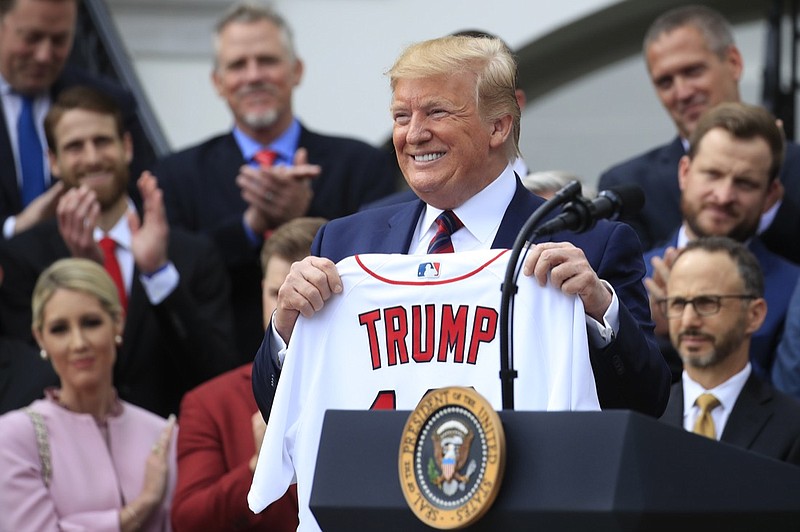Hard to believe, but it seems Donald Trump was an even worse businessman than we thought.
Thanks to New York Times reporters Russ Buettner and Susanne Craig, we've learned that Trump's old tax records show that during his "Art of the Deal" era, he was pretty much the national champion for financial underachievers. In 1990 and 1991 he had losses of more than $250 million a year - "more than double those of the nearest taxpayers in the IRS information for those years."
Well, you can't deny he was a record-breaker.
Trump likes to portray his old financial troubles as a temporary product of a recession. But even back then it was pretty apparent that he wasn't really, truly all that great at deal-making. At the time, I called him a "financially embattled thousandaire," and he took great offense.
Trump would like us to believe all that red ink was actually a canny business strategy. "You always wanted to show losses for tax purposes," he tweeted after the Times report, adding that "it was sport."
On behalf of the millions of Americans who filed their IRS returns last month, I want to say that it is always a treat to hear our president explain how only suckers pay taxes.
However, it's becoming increasingly clear that even the cynical version of Donald Trump as a businessman was maybe an overestimation.
Which can be sort of unnerving. For instance, just before we got this new batch of information on his failure as an empire-builder, Trump met with Democratic leaders of Congress to discuss - a big, huge building plan.
Infrastructure! When Trump was campaigning, he promised a big, exciting $1 trillion agenda for what he would later describe as "gleaming new roads, bridges, railways and waterways."
After he was elected, Trump never went so far as to say "all that stuff I talked about is actually boring." But when Infrastructure Week rolled round and he was dispatched to Ohio for a speech about waterways, he veered off into an attack on the Democrats for being "obstructionists" on health care.
In 2018, the president promised "the biggest and boldest infrastructure investment in American history," to be paid for by, um, persons other than himself. Mostly state and local governments, and tolls on drivers and truck transport. Nothing happened.
Last week, Trump sat down with Nancy Pelosi and Chuck Schumer to discuss a possible plan. Infrastructure was back! And to everybody else's surprise, the president upped the ante to $2 trillion.
We've yet to find out which Donald Trump was negotiating with the Democratic leaders. Once in a while a Good Donald spirit takes over the president and he suddenly announces he's going for real immigration law reform, or serious gun control legislation or . Experience suggests the Good Donald doesn't last more than a couple of days.
Still, a big-ticket infrastructure program doesn't require a profile in courage or even a plan. It's the political equivalent of a litter of puppies, only larger and more expensive.
Except you'd need a real government to carry it out, with smart, disciplined oversight. Otherwise the money would get wasted on pork-barrel projects and endless consulting contracts that turned into extremely expensive plans to nowhere.
Sort of like one big Trump Shuttle.
Lately, there's been no talk on the presidential side about how to pay for it - that's coming, ha-ha, later. The Democrats have suggested raising the gas tax or cutting back on those tax cuts for the wealthy. Mitch McConnell has made it clear he won't let anybody mess with those tax cuts, which will cost the government about $2.3 trillion in revenues over the next decade. Add that to the new $2 trillion in infrastructure spending, you'd have - a bunch of money, right?
Trump seems unworried. "Nobody knows debt better than me," he said during the campaign. And on this point, I dare say we can all admit he was right. Frisky little thousandaire.
The New York Times
